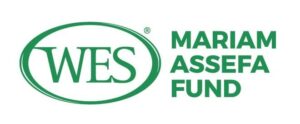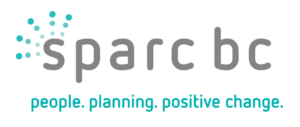Coming February 2024
A New Pilot Professional Development Program and Ideas Incubator
Spark Systemic Change
Reimagine Employment
Transforming Employment Narratives (TEN): Inspired by Refugee Claimants and Employers
Refugee claimants often struggle with underemployment in Canada. This happens despite enormous personal resilience and high levels of professional experience and education. This leads to employers missing out on valuable talent that refugee claimants bring to organizations.
Kinbrace is inviting 16-20 participants, made up of refugee claimants, employers, HR professionals, and settlement workers, to join us in deepening our collective understanding of this systemic issue. Together, we’ll envision how we change recruitment, hiring practices, and staff care to better serve refugee claimants and employers. Come join us!
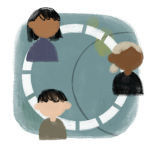
Who Will Benefit from TEN
Be part of changing the employment system to better serve refugee claimants, other newcomer groups, and employers.
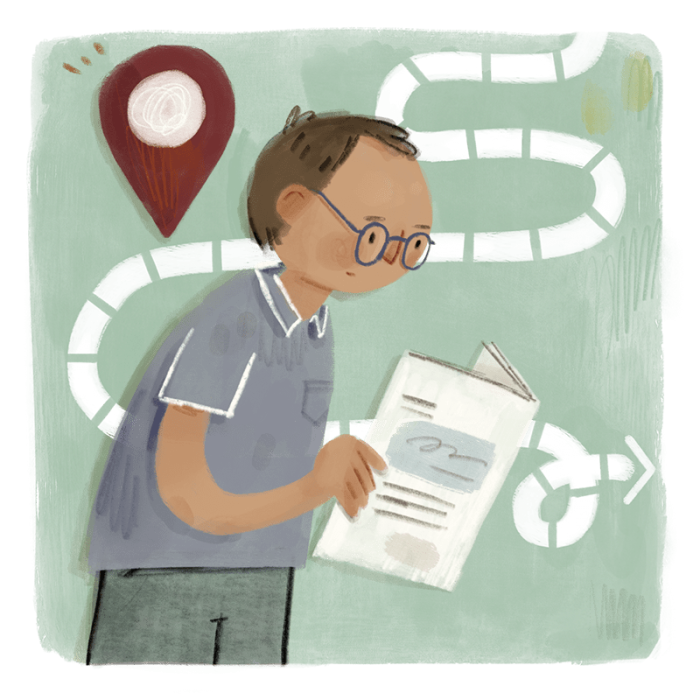
Refugee Claimaints will…
- Have opportunities to connect with employers, HR professionals, settlement workers, and fellow refugee claimants.
- Get clarity on navigating the employment system by finding out how and what Canadian employers think about during the recruitment and hiring processes.
- Learn how to tell your story and share the highlights of your journey.
- Advocate for refugee claimants right to work and belong.
- Receive different training to add to your resume and learning experience.
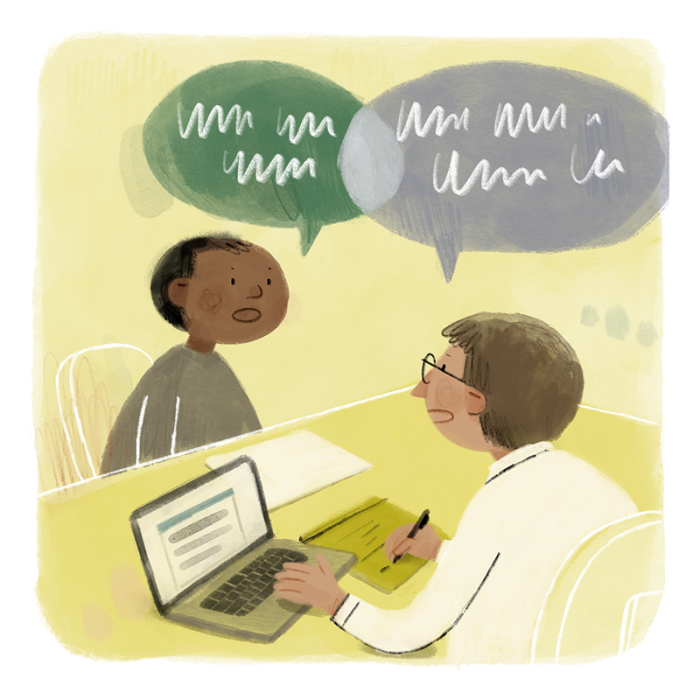
Employers & HR Professionals will…
- Gain a better understanding of employees / potential employees who are refugee claimants.
- Have a nuanced Diversity, Equity and Inclusion learning experience, including trauma informed care training, to better support your employees and improve your workplace culture.
- Learn how to use your sphere of influence to create a positive impact on your staff and refugee claimants.
- Develop an understanding of the current system and how you want to position yourself within it.
- Bring new perspectives, practices and talents to your organizations.
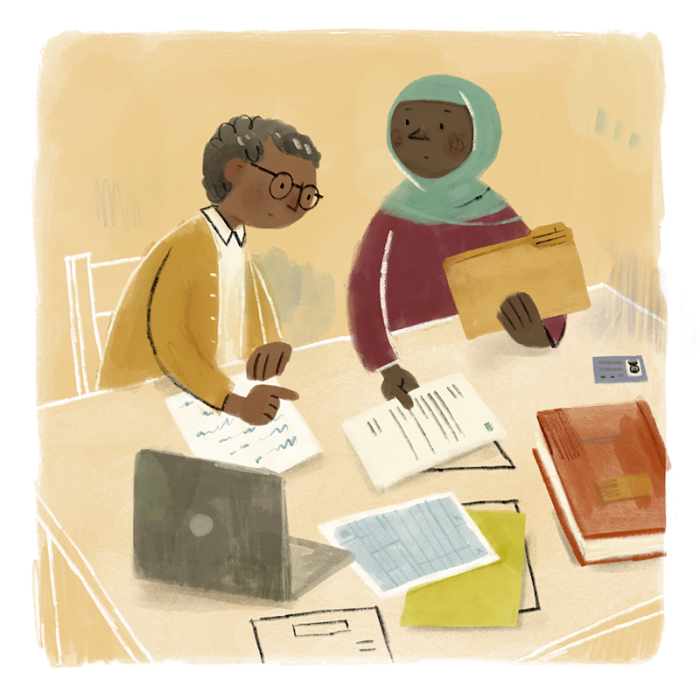
Settlement Workers & Immigrant Services will…
- Gain a better understanding of your refugee claimant clients.
- Learn to apply a trauma informed and equity-centered approach to working with your clients.
- Make meaningful connections to organizations invested in DEI work.
- Have more meaningful experiences in your job, go beyond numbers to human relationships.
- Grow in your own career development journey.
2023 - 2024 Key Dates
October 15 (extended)
Application Closes
November 2023
Confirmed Participant Announcement
February 2024
Program Dates
Program Highlights
This program is for current and former refugee claimants, as well as employers, HR professionals, and settlement workers who are committed to social change, and want to learn about systemic change.
Immerse yourself in the theory and practice of equity-centered systems change from facilitators who have both theoretical and practical knowledge of what it takes. By centering this program on refugee claimants, one of the most underserved equity-denied communities in Canada, we gain insight into equitable practices that carry value in other community contexts.
Transforming Employment Narratives: Refugee Claimants and Equity in the Workplace
In today’s workplaces, there exists a glaring gap in our understanding and focus on the experiences of refugee claimants.
What can we learn from refugee claimants’ journeys about promoting equity in the workplace?
Join us on October 25 at the Morris J. Wosk Centre for Dialogue – Vancouver to hear the first-hand experiences of refugee claimants and employers. Gain insight on how they navigated the employment landscape and consider the challenges encountered along the way. By delving into their experiences and highlighting Kinbrace’s reflective practices on the employee-employer relationship, we can bridge the knowledge gap, foster inclusion, and ultimately, create workplaces that honour the principles of equity.

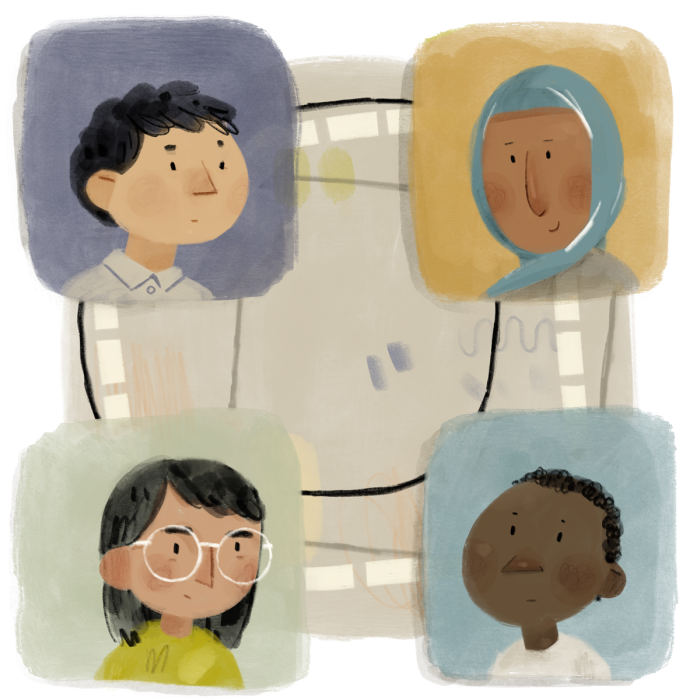
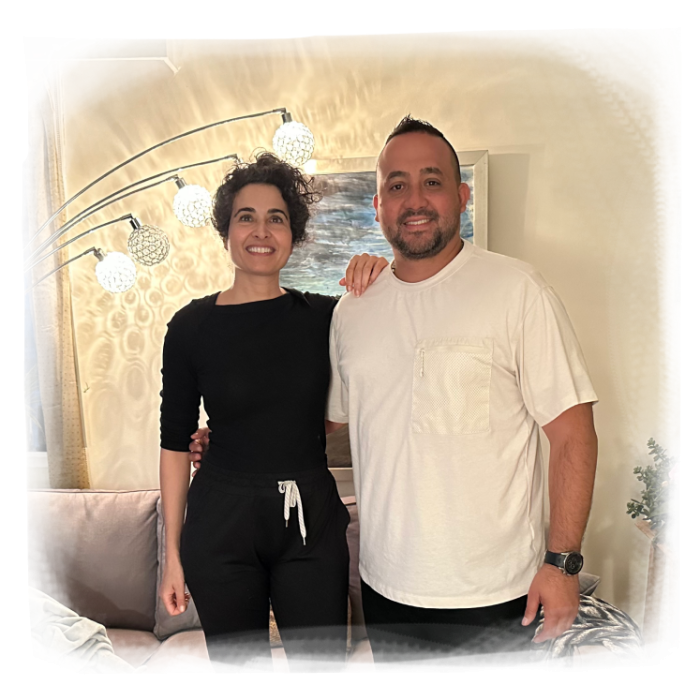
The Facilitators
Working with expert facilitators, Jorge Salazar and Camille Dumond, we have developed a trauma-informed, high trust and generative learning space that cultivates connections and peer learning between participants using systems practice tools and frameworks.
Jorge and Camille have been working together since 2017. They have collaborated on projects that bring people together to build the courage and care needed to face inequity head on, shift the conditions that keep problems in place, and equip participants to protect the most vulnerable in our society. Projects they have worked on together include those at InnerActivist and the Refugee Livelihood Lab at SFU.
Together, we will spark systems change or refugee claimants and employers through mutual transformation.
Get in Touch
If you have any questions or concerns or are unsure if this is the right program for you, contact Project Coordinator, Mohammed Zaqout at mohammed@kinbrace.ca.
Acknowledgements
This project is being implemented on the traditional and unceded land of the Coast Salish peoples, including the shared traditional territories of the xʷməθkʷəy̓əm (Musqueam), Sḵwx̱wú7mesh (Squamish), and səl̓ilwətaɁɬ / sel̓íl̓witulh (Tsleil-Waututh). We further recognize the enduring presence of all First Nations, Métis and the Inuit peoples.
While this program is for refugee claimants, we are in solidarity with the elderly, newcomers, refugees, undocumented people, Indigenous people, Black people, people of all religious faiths, racialized people, English language learners, drug users, sex workers, the LGBTQIA2+ community, young people, low income people, parents, caretakers, people who live with mental illness, physical illness, accessibility needs, or trauma. If an identity you hold is unseen, please let us know so that we can learn and hopefully welcome you into this program.
